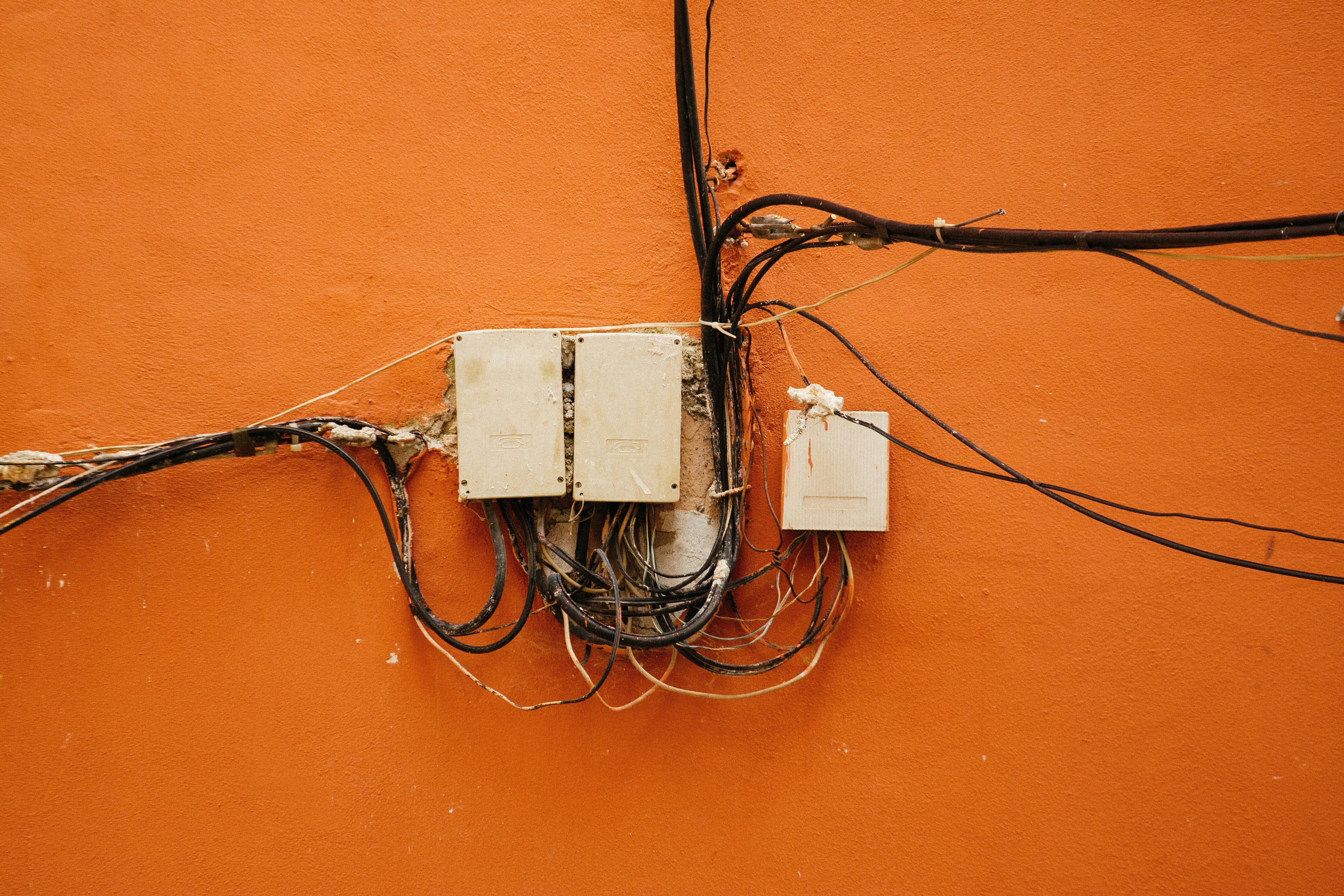
Fire! Don't think about it happening to your company: you're looking at human and material damage, but also a production standstill, customers who drop out or systems that remain unusable for a long time... So don't tempt fate and keep your electrical installation up to date!
Why is an old electrical installation dangerous?
An outdated electrical system can work fine at first glance, but suddenly fail and cause a fire. Why?
Perhaps it was not designed according to current fire safety insights and standards.
An outdated installation (wiring, fuses, insulation) is more likely to cause short circuits and overheating because it is not equipped for modern electrical appliances and machines.
Over the years, damage may have occurred that you do not easily notice, or that was not professionally repaired. Think damaged insulation on cables, loose sockets and ordinary wear and tear.
This is why the legislator in Belgium stipulates that the electrical installation of your business premises must comply with the AREI safety regulations (General Regulations on Electrical Installations). These were amended in 2020 and updated again in 2024.
Is your company's electricity outdated? This is how you notice it
Even if you know very little about electricity yourself, you can assess whether the electrical installation in your premises is still in safe condition. Be sure to pay attention to these things:
Do lights flash, appliances sometimes fail or fuses regularly blow? This indicates an unstable installation that is overloaded or consists of bad connections.
If you see discoloured sockets, switches or fuses, this could indicate unhealthy heat in the underlying wiring.
Does the electrical installation have correct earthing?
Do you have a working differential switch (or loss current switch)? That switches off the electrical cabinet centrally as soon as electricity leaks somewhere. An old installation often lacks this built-in safety.
When was electricity installed in your commercial building? If it was before 1981, the AREI legislation may require you to adapt your electrical installations. To prevent fire hazards and electrocution, you will have to install a type A 30mA differential switch, among other things.
Fire prevention: this is how to protect your premises
AREI inspection
If you doubt the state of your electrical installation, have it checked by a certified electrician or a certified AREI inspector. They can make informed judgements and indicate exactly what adjustments are needed.
An AREI approval is generally valid for 25 years. Some companies, such as catering establishments, have to apply for a re-inspection sooner. In any case, you have to have your electrical installation re-inspected when something changes (e.g. installation of solar panels).
Risk analysis and maintenance schedule
Whether recent or somewhat older, every electrical installation needs regular maintenance. Because even a seemingly minor defect can have serious consequences.
Annually inspect all parts of your installation: the wiring, switches, fuses and sockets. Especially in older installations, you can call in a specialist for this. They will not only carry out a visual check, but will also use an infrared device to detect heat in places that are inaccessible to the naked eye.
Make a checklist of what needs to be checked regularly, both on the installation itself and on electrical appliances and machines. Also keep meticulous records of what you notice at each check and repair if necessary.
Do you employ employees? Then you are also obliged to carry out a risk analysis of your electrical installation. This includes the risk of overheating and fire.
Electrical appliances
Unsafe appliances, or unsafe use of them, can trigger problems with your electrical system. Or in themselves cause fire. So only use electrical appliances with a safe cord, keep them away from flammable materials or heaters and avoid overloading sockets. Switch off appliances completely when not in use and charge batteries safely.
Fire protection
Like insurance, you hope your smoke detectors and fire alarms never have to spring into action. But you don't want to risk them not working when disaster strikes. The right fire extinguishers in strategic places in your business and possibly an automatic fire extinguishing system are no luxury either. Combine these devices with clear emergency procedures and a foolproof evacuation plan.
Employee awareness
Inform your employees about the risks, the right way to handle electricity and what to do if the electrical installation does cause a fire. Together, you notice more than alone and can react faster.
Fire risks: too often underestimated ánd underinsured
When you are lax about your electrical installation and appliances, you run unnecessary fire risks. That's obvious. But what many business owners do not know is that fire insurance does not always intervene if it turns out that an outdated or poorly maintained electrical installation caused the fire.
In addition, as a business owner, it may be wise to take out multi-risk insurance instead of basic fire insurance. Such a policy protects you against many more risks and you can extend it according to your needs. For example, if you need to temporarily hire an emergency power generator to keep your business running, the insurance can also intervene in that cost.
In short: start a risk analysis and fire prevention plan for your business today. And don't forget to update your fire policy in the process!

